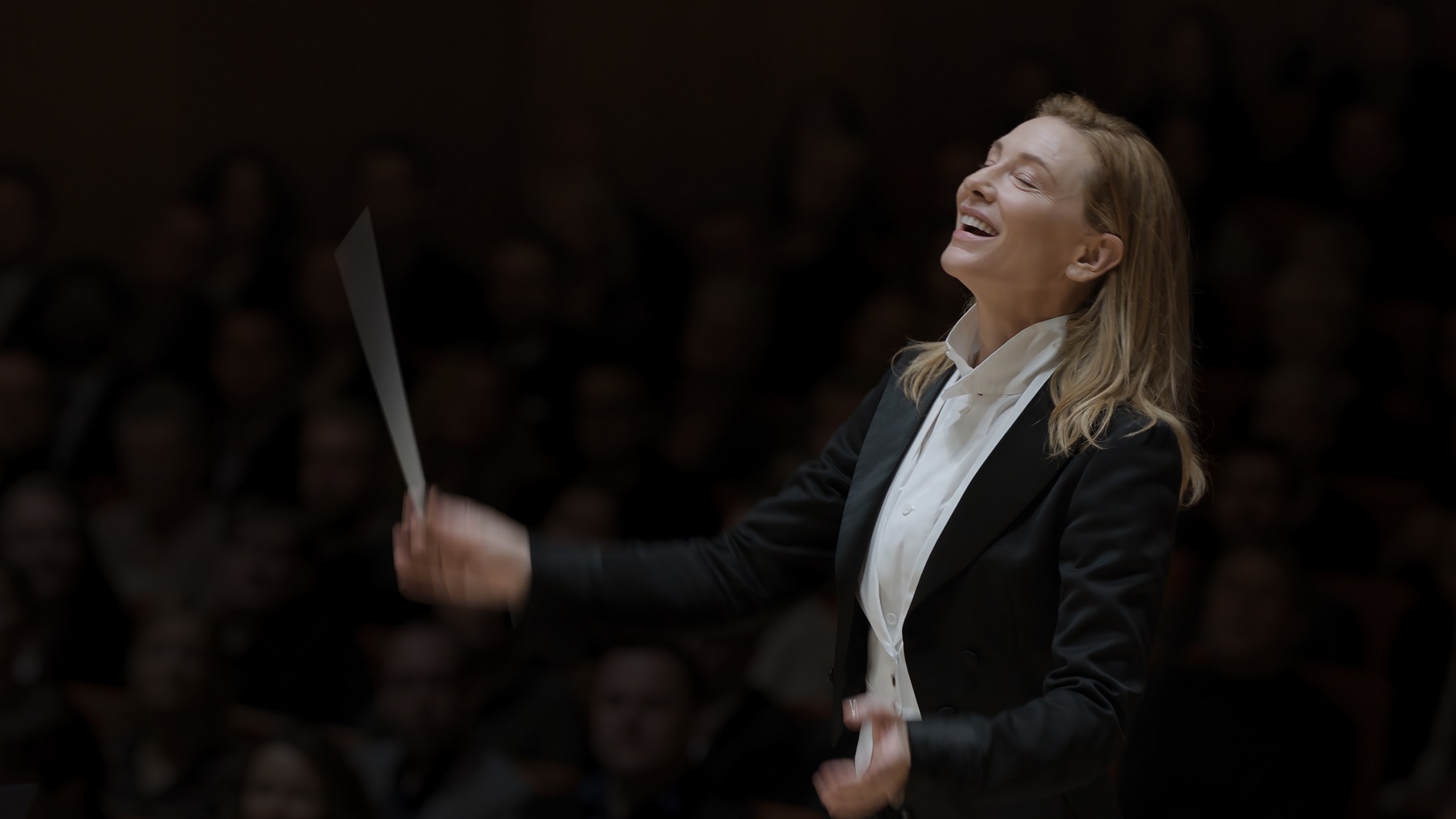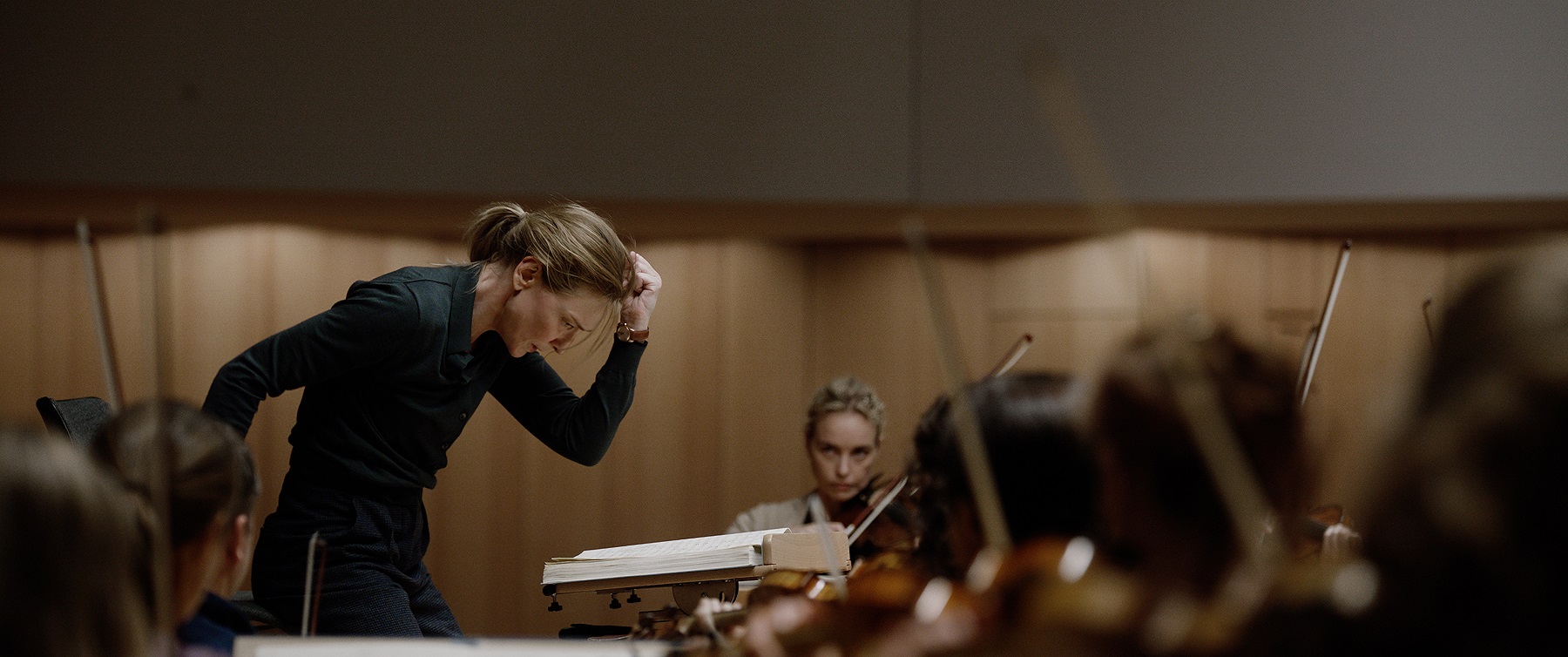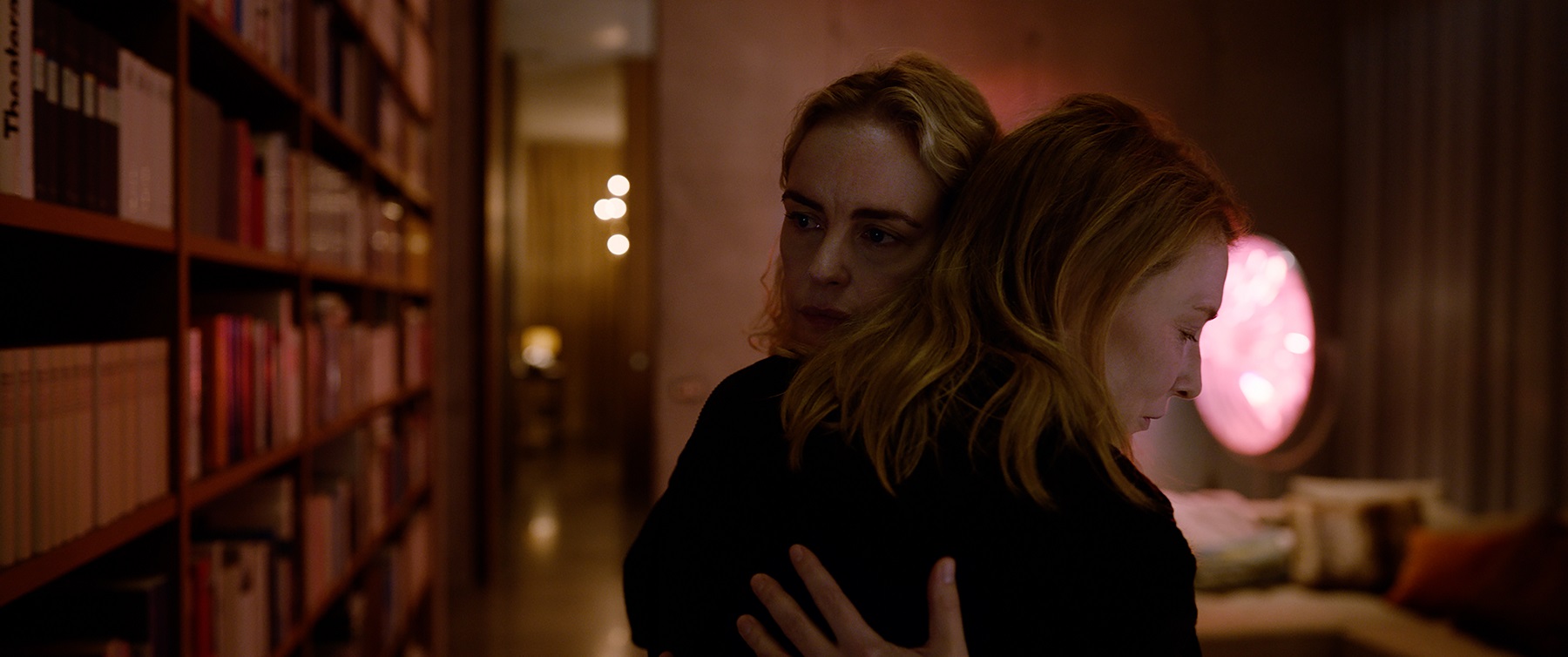Tár has many similarities to much of the music featured throughout the movie – it starts slowly but then builds to a crescendo.

However unlike the music it ends unexpectedly.
By introducing the lead character Lydia Tár (Cate Blanchett) through a fairly long chat on stage with interviewer, New Yorker writer Adam Gopnik (played by the writer), the film starts sedately. Playing the credits at the start adds to the slow feel.
At the same time the interview provides a valuable insight into Tár’s accomplishments, personality and beliefs.

We learn she is one of the world’s most successful musical talents having won Emmy, Grammy, Oscar, and Tony Awards. She holds the ultra-prestigious position of head conductor of the Berlin Philharmonic and her next major project is to be a live recording of the orchestra playing Mahler’s Symphony No. 5 for Deutsche Grammophon.
One of her pet projects is a mentoring scholarship programme for women, administered by investment banker and would be conductor Eliot Kaplan (Mark Strong).
Through this interview and early interactions with colleagues and students we see her life is one of glamour and prestige. She’s a brilliant communicator and is also extremely demanding, passionate, opinionated and is aptly known as Maestro.

Tár is living with Sharon (Nina Hoss) the orchestra’s first violinist and they have a child (Mila Bogojevic). They live in a spectacular apartment, but she also keeps her old Berlin flat as a composition studio.
The other important person in her life is personal assistant and would-be conductor Francesca (Noémie Merlant) who looks after all work and some personal matters.

One of the first insights we get into Tár’s character occurs during a lecture she is giving to a small group of aspiring conductors in New York. Her humiliation of one those students Max (Zethphan Smith-Gneist), who refuses to play ‘the music of a racist dead white man like Bach’, is brutal.
Things start to unravel for Tár when twenty-something Krista Taylor, one of the women from the mentoring scheme, unsuccessfully attempts to contact her directly and through Francesca. It seems Tár has blackballed Taylor ensuring she is unable to get work.

Taylor’s subsequent suicide and the resulting media coverage together with Tár’s relationship with a new member of the orchestra, gifted Russian cellist Olga (Sophie Kauer), has a devastating impact on Tár’s home life and career.
Without doubt the greatest joy of Tár is watching Blanchett in action.
She brilliantly portrays a woman who is a genius in her chosen field but who is also extremely self-absorbed, manipulative and cunning as shown by her manoeuvrings to ensure senior orchestra members support her decision to hire Olga.

Blanchett learnt to speak German and play the piano specifically for the role, which adds to her character’s authenticity.
Often it’s hard to believe that Tár isn’t based on a real person rather than being a creation of the movie’s writer-director Todd Field and Blanchett.
Hoss, Merlant and Kauer are equally believable in their roles.
Running for nearly two hours and 40 minutes Tár requires some concentration. And its underlying themes of sexual misconduct and abuse of power may not appeal to everyone. However, for lovers of classical music (thanks to the orchestral scenes and musical discussions) and for those who appreciate a brilliantly acted movie about a flawed genius, the time goes very quickly.
Tár opens in cinemas around Australia on January 26.
*Photo credit: Focus Features
- movie reviews
Subscribe My Newsletter
Unsubscribe at any time.





I really enjoyed this review . It was insightful and perceptive.